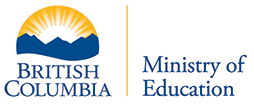
Unit Plan: Field Study – Farm
Science / Grade 6
Big Ideas
- Multi-cellular organisms rely on internal systems to survive, reproduce, and interact with their environment (Science 6).
CONCEPTS
- Systems
- Organism
- Interdependence
- Survival
- Adaptation
- Reproduction
- Interactions
- Environment
- Stewardship
Essential Questions
Students will keep considering…
- What is a living organism?
- What do all organisms need for survival?
- What adaptations help the organism survive in its environment?
- What interactions do you observe –between organisms, and between the organism and environment?
- How am I connected to the organism(s) I’ve experienced during field studies?
- What does it mean to be a steward of the environment?
Evaluative Criteria
- Play Yes/No/Depends, a game of ethics
- Have a final debrief
Monitoring Progress
Teacher will monitor progress:
Teachers can monitor progress through ongoing formative assessment including but not limited to:
- Walk and Talk
- Mind-mapping
- I notice-I wonder
- It reminds me of…
Resources
Reflection
How will teachers and their students reflect on and evaluate the completed project?
Teacher Reflection
- What aspects of the field study went well?
- What did students struggle with?
- What did you struggle with?
- What would you add/revise the next time you taught this field study?
- What connections can I make back to my school learning community? (e.g. Examine human body systems. Compare and contrast with organisms investigated during ODS Program)
Downloads
Unit Overview
Subject
Science
Topic
Field Study – Farm
Unit Overview
The Cheakamus Centre has a teaching farm, used to introduce students to a variety of animals used on a farm for food, products and pets. Students can study about the concept of Farm to Table, learn about sustainable food production and biology, including adaptation and reproductive systems. This Farm Field Study will focus Systems within a farm setting. We see many systems at play and are interested in some of these questions: how is the organism is a system; how do the animals interact; and how do we interact with animals?
Grade
6
Unit Duration
2 hours
Related Big Ideas
N/A

The following resources are made available through the British Columbia Ministry of Education. For more information, please visit BC’s New Curriculum.
Big Ideas
The Big Ideas consist of generalizations and principles and the key concepts important in an area of learning. The Big Ideas represent what students will understand at the completion of the curriculum for their grade. They are intended to endure beyond a single grade and contribute to future understanding.
Core Competencies
 Communications Competency
Communications Competency
The set of abilities that students use to impart and exchange information, experiences and ideas, to explore the world around them, and to understand and effectively engage in the use of digital media
 Thinking Competency
Thinking Competency
The knowledge, skills and processes we associate with intellectual development
 Social Competency
Social Competency
The set of abilities that relate to students’ identity in the world, both as individuals and as members of their community and society
Curricular Competencies & Content
Curricular Competencies are the skills, strategies, and processes that students develop over time. They reflect the “Do” in the Know-Do-Understand model of curriculum. The Curricular Competencies are built on the thinking, communicating, and personal and social competencies relevant to disciplines that make up an area of learning.
Additional Resources
First People's Principles of Learning
To read more about First People’s Principles of Learning, please click here.
For classroom resources, please visit the First Nations Education Steering Committee.
